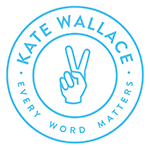The mini-lights are twinkling, the eggnog’s topped with rum, and the smell of pine boughs is in the air. This writer is feeling festive and—while Orange Phase restrictions have put a serious damper on my shopping this year—I’m sending you a stocking full of intangible, but valuable, gifts for your holiday writing projects and 2021 storytelling resolutions.

1. Love.
As in self-love. The greatest barrier to writing that I see? People don’t believe they have a story to tell. They mistake stories for high drama, epic stakes or heart-wrenching trauma.
Nope. Stories are simply about change, and they don’t need to be a tragedy of Shakespearean proportions to matter. Every life is uniquely fascinating, even quiet and mostly happy ones. Don’t dismiss yours. Share it.
2. Writer’s Voice
Writing is as much about voice as content.
Voice is the how; it’s the tone, personality and word choice to the what of your content. In a sea of sound-alike imitators, your writing voice sets you apart.
Not sure what yours is? Start by writing as you speak.
3. Creativity.
I actually don’t need to bestow this upon you. You’ve got it already.
You’re always creating, whether it’s the narrative in your head or the shape of your life. The difference between a writer and the rest of humanity? The former capture their impressions and experiences in words that they share. That’s it.
4. Imperfection.
“Writers share their work. Perfectionists hoard it.” I saw this on Twitter recently, and it resonated. Thanks to cable TV and Marie Kondo, we all know hoarding is Bad Idea Jeans.
This is as true for your writing as it is for your closet. So, let it go. Put it out there. It is only through crafting and sharing a lot of mediocre or even downright crappy copy and stories that you’ll get to the gold.
5. Fun.
Writing is often characterized as hard. And, well, that’s true. God, some days it’s all grind. But not always.
Writing is like going to the gym: painful and awkward sometimes, especially in the beginning. Once you start to get fit and toned, though, by building the habit of your practice, you’ll increase the odds of that magical flow state, when the words roll onto the page, and you fill with the thrill of effortless self-expression. That’s a writer’s idea of fun.
6. Bravery.
It’s not easy to put your ideas and work out there for all to see, so I give you the gift of risk.
Take a bold, maybe even unpopular, position. Resist the pull of generic words and ideas. Ruthlessly edit out business-speak and jargon. Have the confidence to write in the simplest way possible. Huzzah!
7. Help
Hiring the Crystals was the best thing I did for my business in 2020. I’m talking about PR maven Crystal Richard and content whiz Crystal Picard, who keep me accountable, inspired and on track.
Without them, this blog and my newsletter would not have happened. I wouldn’t be pitching articles and essays. Left to my own devices, I’d never guest on a podcast.
You don’t need to pay for help, though. Find an accountability buddy or workshop drafts with a friend.
8. Mistakes
Confession: copy editing is not my strength.
I love starting a piece of writing and finding my way to a strong finish. I like editing as I go for clarity and structure. But poring over a draft in search of typos and flaws? Ugh. It’s the part of the job I have to force myself to do.
But on social media, I’m much more free, willing to make the occasional typo in exchange for the energy and immediacy of unedited posts.

9. Notebooks
“I love office supplies. With their exception, everything in my line of work takes place in my head, which is to say, it is arguable whether it occurs at all. Office supplies are the only artifacts, and the choice of a pen or a notebook is a big deal to me.” The playwright David Mamet says it better than I ever could.
A blank notebook is an invitation. A full notebook is your writing larder. Raid it.
10. Rest
While I mentioned a few low-tech methods to improve your writing before, one of the best things I can offer is to simply permission to rest.
While the holidays can be full of hustle and bustle—yes, even in a pandemic—they can also be a time of rest for your weary mind. After a stressful year for everyone, take some time to sleep in, read good fiction, or play board games with your family.
Taking time to rest over the holidays will leave your creativity refreshed to take on the new year.




Thank you, Kate!!!! Lovely and oh so enjoyable to read this stuffed stocking! Merry Christmas!!!